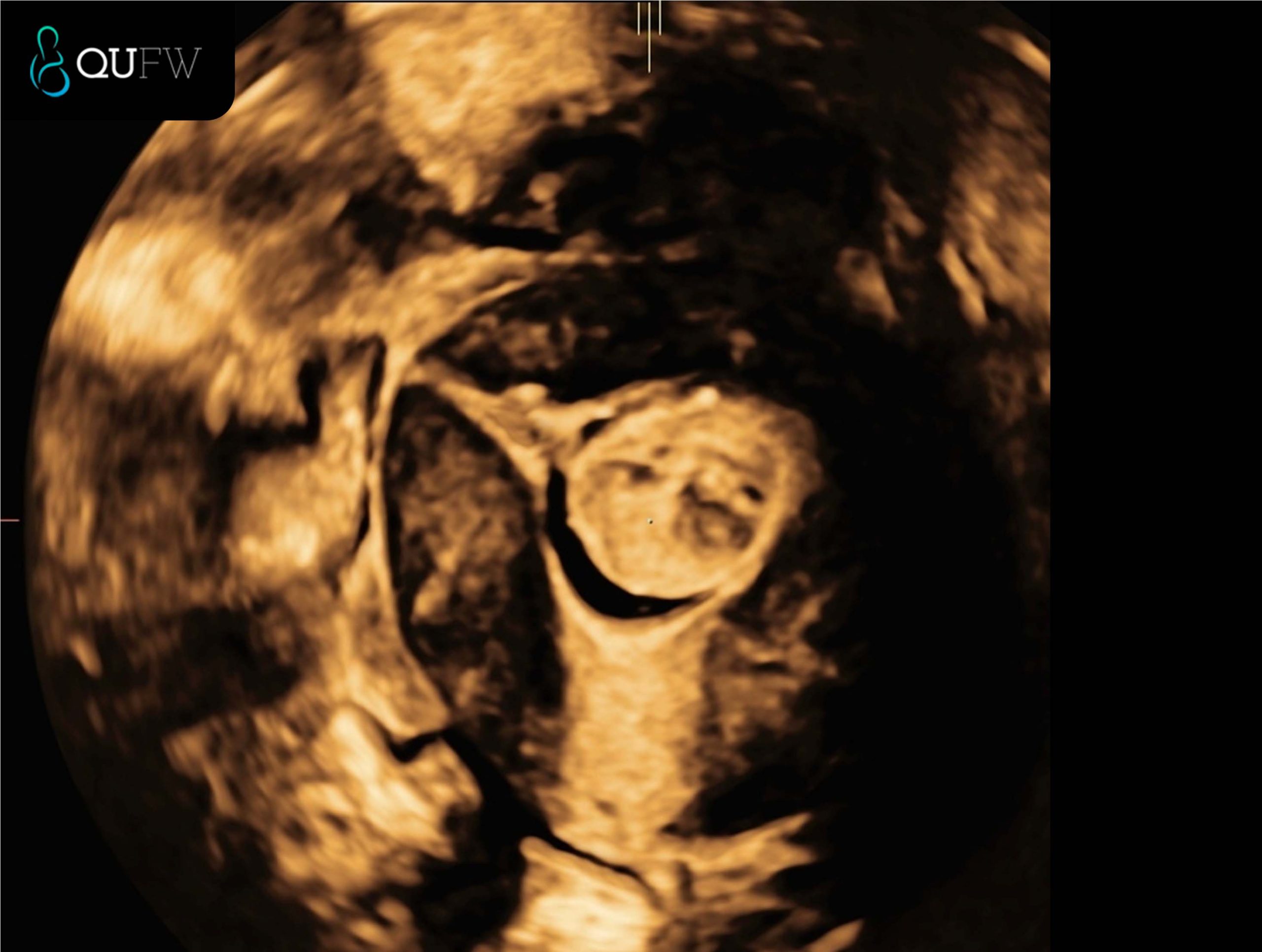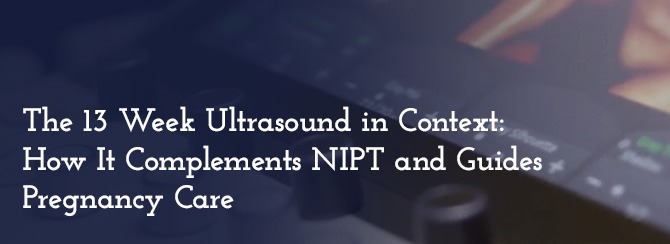Saline Infusion Sonography
SIS is a specialised ultrasound procedure used to assess the inside of the uterus.
It involves inserting a solution of saline (salt water) into the uterine cavity to better visualise the lining of the uterus and the cavity.
SIS is used to detect abnormalities of the lining of the uterus. It is performed in conjunction with a transvaginal ultrasound to assess the pelvis.
You may be sent for a SIS to investigate:
- Fertility issues
- Recurrent miscarriage
- Bleeding issues such a postmenopausal bleeding or irregular bleeding
- Fibroids
- Polyps
Saline Infusion Sonography (SIS) showing a submucosal fibroid in B-mode ultrasound imaging

Saline Infusion Sonography (SIS) showing a 3D coronal reconstructed image of a submucosal fibroid
Preparation
The procedure needs to be performed between 3 to 9 days after the first day of your last menstrual period. If you have a very irregular cycle or infrequent periods it is advisable to contact us on day 1 of your period to make your booking.
Please empty your bladder 1 hour prior to your appointment and drink 1 glass of water. You may be asked to complete a pregnancy test in our rooms. If the test is positive the procedure cannot be performed.
What to bring
- Previous ultrasounds
- Referral from your Doctor
What to expect
The examination will take approximately 1-1.5 hours, but most of this time is used for setting up the equipment and performing the initial scan. The procedure itself will only take approximately 10-15 mins.
Initially, an abdominal scan will be done to assess the position of the uterus and ovaries. You will be given a gown to wear.
The Sonographer or Doctor will explain the procedure to you and discuss your relevant history. A transvaginal ultrasound will be performed prior to the SIS procedure.
The Doctor will insert a speculum into the vagina and apply an antiseptic solution to the cervix. A fine tube (2mm) will be passed through the cervix and into the uterine cavity. The speculum will then be removed and the transvaginal probe will be inserted. A solution of saline will be introduced into the uterus using the fine tube. You may feel a warm sensation and less frequently mild cramping similar to period pain. The Doctor will observe the solution pass through the uterine cavity and assess the lining of the uterus. When the procedure is finished the tube and probe will be removed.
You will be given a sanitary pad as it is normal to expect some fluid leakage after the procedure. The Doctor will discuss the findings with you and you will be given a report.
Will I require an anaesthetic?
No, anaesthetics are not required and therefore you will be awake for the procedure.
Is it safe?
SIS does not require ionising radiation or a general anaesthetic and is therefore a safe test for investigating the lining of the uterus.
Will it hurt?
You may experience mild cramping during the procedure that is similar to period pain. This will usually resolve shortly after the procedure and paracetamol can be used to alleviate these symptoms.
How is this test different to a transvaginal ultrasound?
It can be difficult to clearly see the lining of the uterus in a regular transvaginal ultrasound. The saline solution better outlines the cavity in a SIS procedure.
How is this procedure different to a HyFoSy?
A HyFoSy is a similar procedure but uses a foam ‘dye’ solution to assess the fallopian tubes instead of the uterine cavity.
Will I get money back from medicare?
There is a medicare rebate for this procedure.
Who should not have this test?
Anyone who might be pregnant or has an acute pelvic infection at the time of the procedure should not have this test.

Saline Infusion Sonography (SIS) showing the endometrial cavity in the coronal plane
about QUFW
QUFW provides a comprehensive range of obstetrics services for singleton and multiple pregnancies, including screening, tertiary opinion and invasive testing. In addition, our gynaecology ultrasound examinations are equally expansive from routine to gynaecology procedures.
Beyond your scan, we believe in comprehensive care. Our team takes the time to discuss findings with you, answering your questions, addressing your concerns, and providing you with support and guidance. We value the trust placed in us and are committed to delivering ultrasound and other women’s health services to our community and beyond. We are QUFW. We are here for you.
FREQUENTLY ASKED QUESTIONS
What are your opening hours?
Our Brisbane practice is open Monday – Friday 8am to 5pm, Saturday 8am-12:30pm.
Our Ipswich, Southport and Tugun practices are open between Monday – Friday 8am to 5pm.
Where can I park my car?
Spring Hill: Metered street parking on Little Edward and Boundary Streets (Please be aware of the clearway zone at certain times of the day).
Parking underneath the Leichhardt Court building (orange section) with entry via Hope Street. Online bookings are recommended through Wilson parking.
Southport: 4 hour metered parking is available on Short Street. Additional car parking available in the Gold Coast City Council Carey Carpark and Australia Fair Shopping Centre
Ipswich: Onsite Parking is available at the back of the Medical Centre. Metered on street Ipswich City council parking is also available.
Tugun: Onsite car parking is available in the John Flynn Hospital campus.
How much will my scan cost?
The cost of the ultrasound and consultation will be discussed at the time of making an appointment. We request that accounts be settled on the day after the consultation. We have EFTPOS and accept MasterCard, VISA and American Express. We are a private medical ultrasound service and we do not routinely bulk bill as this would not allow us to provide the best comprehensive service for our patients.
How long will the appointment take?
Our scans can range from approximately 30-60 minutes depending on the type of scan, but please allow up to 90 minutes. Occasionally there are unexpected delays. If a problem is detected in a routine ultrasound, it will be discussed with you at the time of your appointment. In this situation, further examination and reassessment may extend over a longer period depending on the complexity of this problem and individual patient needs. This process may lead to delay of the assessment of other women’s appointments.
We apologise for these delays which are unpredictable and we make every effort to avoid significant patient inconvenience. We ask that you demonstrate kindness to our staff if there is an unforeseen delay. We recommend that you ring our rooms in advance to check that we are not significantly delayed so you can plan your day and parking arrangements.
Can I bring another person to my appointment?
At QUFW, we allow two support people to attend your appointment. One of these support people may be a child. Sometimes pregnancy ultrasounds can be a long time for your little one’s attention span, so we request that the other support person is a supervising adult who may be able to attend to your child during the scan if necessary. If you are a surrogate patient, we are happy to discuss this with you when you make your appointment.
Latest News & Feature Articles

QUFW expands to Toowoomba with new ultrasound clinic
An exciting announcement from QUFW’s founders, Assoc. Prof. Robert Cincotta and Dr. Jackie Chua...

The 13 Week Ultrasound in Context: How It Complements NIPT and Guides Pregnancy Care
Non-invasive prenatal testing (NIPT) has become an important part of early pregnancy care, giving...
Do you have any questions?
BRISBANE
Suite 11E, Level 1
Leichhardt Court
55 Little Edward Street
Spring Hill, QLD 4000
07 3831 1777
07 3831 1788
[email protected]
TUGUN
Suite 8B, Level 8
Fred McKay House
42 Inland Drive
Tugun QLD 4224
07 5610 4973
07 5604 1192
[email protected]
IPSWICH
Suite 5B,
10 Churchill Street,
Ipswich, QLD 4305
07 3447 9111
07 3492 9299
[email protected]
TOOWOOMBA
Medici Medical Centre
201A/15 Scott St,
East Toowoomba, QLD 4350
07 4542 7855
07 4602 0145
[email protected]
